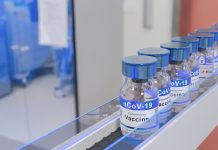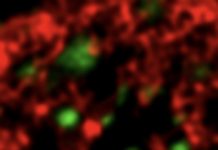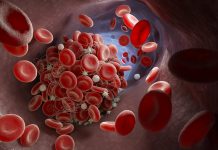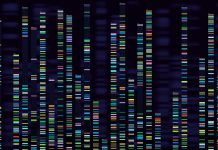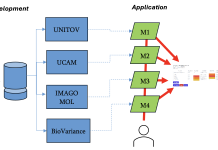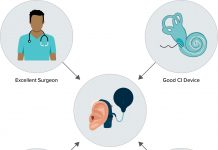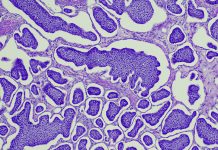Open Access Government produces compelling and informative news, publications, eBooks, and academic research articles for the public and private sector looking at health, diseases & conditions, workplace, research & innovation, digital transformation, government policy, environment, agriculture, energy, transport and more.
Home 2024
Archives
How the “tides” have turned in pharma manufacturing
Two seasoned experts from CPI, Medicines Manufacturing Innovation Centre, detail how the “tides” have turned in pharma manufacturing.
T cells successfully fighting cancer
Else Marit Inderberg and Sébastien Wälchli from Oslo University Hospital explore what we need to know about T cells successfully fighting cancer.
Asbestos-induced autoantibodies across Libby demographics
Aiden Niblett, Jean Pfau, and Kinta Serve focus on asbestos-induced autoantibodies across different demographics in Libby. They emphasize the importance of understanding the impact of asbestos.
Learning from the COVID-19 Pandemic: Next-generation universal vaccines and immunotherapeutic research
With the COVID-19 pandemic behind us, we need to focus on universal vaccines and/or immunotherapeutic strategies and technologies to tackle ongoing endemic infections with SARS-CoV2, influenza, and RSV and prepare for any future pandemics, says Dr Babita Agrawal.
Cigarette smoking focus: A modeling approach for estimating the impact of health programs
Theodore R. Holford from Yale University charts a modeling approach for estimating the impact of health programs in this cigarette smoking research focus.
Arc: A new target for treating alzheimer’s disease
Antonius M. VanDongen, Associate Professor from Duke University, walks us through Arc, a new target for treating Alzheimer’s disease.
Treating neuropathic pain and nicotine dependence: Epibatidine derivatives as potential therapeutics
Lance R. McMahon, Ph.D. and Jenny L. Wilkerson, Ph.D. from Texas Tech University Health Sciences Center, describe the search for the magic bullet to treat both neuropathic pain and nicotine dependence using novel epibatidine derivatives as potential therapeutics.
Assessing blood clot risk in venous catheter selection for patients with haematological cancers
Venous catheters enable patients with haematological cancers to receive vital chemotherapy. However, there is a risk of thrombosis. Consultant Haematologist Priya Sriskandarajah analysed a group of patients with haematological cancers to study the implications of catheter selection.
Co-construction: A key to preventing mental health injuries in occupational settings
Dr Mélanie Dufour-Poirier from the Université de Montréal and Dr Jean-Paul Dautel from the Université du Québec en Outaouais outline a new approach to preventing workplace mental health injuries and improving wellbeing.
The risk of malignant pleural mesothelioma
Although the use of asbestos-containing building materials was banned in the UK in 1999, this carcinogenic mineral continues to be a serious health threat. Daniel J. Murphy from the University of Glasgow tells us more.
Artificial intelligence (AI) tools in genetics
Vessela Kristensen and Dag Undlien uncover AI tools in genetics, from variant recognition to clinical implementation.
Can the arts be an effective tool to combat psychosis stigma?
There has been a rise in stigma for mental illnesses over the past few decades, particularly for psychotic symptoms. However, artistic representation may be the key to eliminating psychosis stigma.
The future of AVS, dizziness, and vertigo in emergency departments: Part II. Policy innovations...
In the second article of this five-part series, Dr Millie Nakatsuka discusses the barriers that contribute to the overuse of neuroimaging associated with the diagnosis of acute vestibular syndrome and proposes systemic reform.
The European REVERT Project: An ai-based dss for treatment selection
Find out here about the European REVERT project, an AI-based DSS for treatment selection.
Hearing and auditory research for cochlear implant outcomes
Amit Walia, Matthew Shew, and Craig A Buchman from Washington University School of Medicine, guide us through hearing and auditory research predictive models for cochlear implant outcomes in adults.
Investigating lung cancer using genetically engineered mouse models (GEMMS)
Daniel J. Murphy, Professor of Lung Cancer & Mesothelioma at the University of Glasgow, School of Cancer Sciences, discusses opportunities for improving cancer research and care through the use of genetically engineered mouse models.
The opioid crisis in canada – Governmental responses and strategies
Norm Buckley, Scientific Director at the Michael G. DeGroote Institute for Pain Research & Care, and Jason Busse, Director of the Michael G DeGroote National Pain Centre at McMaster University, discuss the complexities of chronic pain management and addressing the opioid crisis.
Why greener pharmaceutical manufacturing is vital for the industry and our health
Determined to tackle the carbon footprint of medicine, CPI’s Medicines Manufacturing Innovation Centre is addressing key sustainability issues in pharmaceutical manufacturing.
Upscaling integrated mental health services and systems for people of forced migration
How can realist impact evaluation be used to upscale the integration of mental health programs for people of forced migration? Nancy Clark, an Associate Professor from the University of Victoria, investigates.
Are nanotextures enough to kill cancer cells?
Nanotextures on nanoparticles and implants to kill cancer cells in a more targeted manner may just be the key to tackling resistance to traditional cancer drugs.




